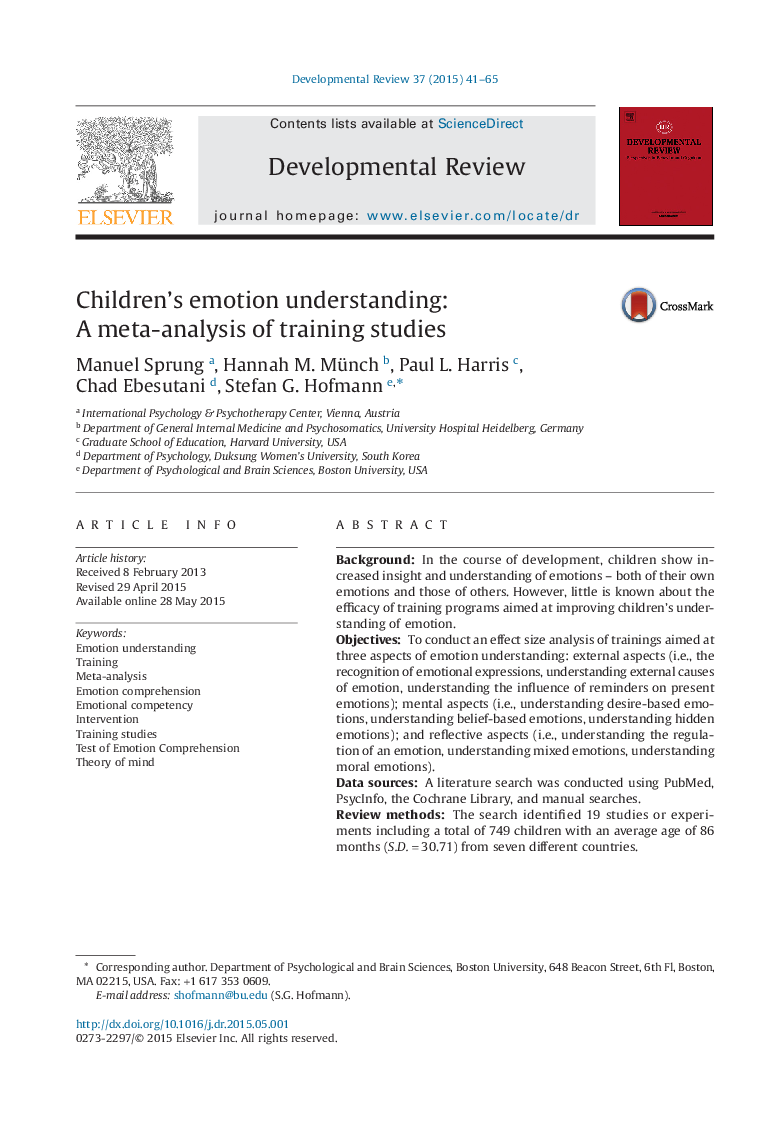| کد مقاله | کد نشریه | سال انتشار | مقاله انگلیسی | نسخه تمام متن |
|---|---|---|---|---|
| 353435 | 618797 | 2015 | 25 صفحه PDF | دانلود رایگان |
• A quantitative review of Emotion Understanding (EU) training programs was conducted.
• We identified 19 studies/experiments totaling 749 children (mean age = 86 months (SD = 30.71).
• EU trainings were effective for all three aspects of EU (Hedges' g = 0.62; 0.31; 0.64).
• Specific EU skill-related outcomes were moderated by training setting, social setting and the length of training session.
• We conclude that EU training procedures can effectively enhance EU in children.
BackgroundIn the course of development, children show increased insight and understanding of emotions – both of their own emotions and those of others. However, little is known about the efficacy of training programs aimed at improving children's understanding of emotion.ObjectivesTo conduct an effect size analysis of trainings aimed at three aspects of emotion understanding: external aspects (i.e., the recognition of emotional expressions, understanding external causes of emotion, understanding the influence of reminders on present emotions); mental aspects (i.e., understanding desire-based emotions, understanding belief-based emotions, understanding hidden emotions); and reflective aspects (i.e., understanding the regulation of an emotion, understanding mixed emotions, understanding moral emotions).Data sourcesA literature search was conducted using PubMed, PsycInfo, the Cochrane Library, and manual searches.Review methodsThe search identified 19 studies or experiments including a total of 749 children with an average age of 86 months (S.D. = 30.71) from seven different countries.ResultsEmotion understanding training procedures are effective for improving external (Hedge's g = 0.62), mental (Hedge's g = 0.31), and reflective (Hedge's g = 0.64) aspects of emotion understanding. These effect sizes were robust and generally unrelated to the number and lengths of training sessions, length of the training period, year of publication, and sample type. However, training setting and social setting moderated the effect of emotion understanding training on the understanding of external aspects of emotion. For the length of training session and social setting, we observed significant moderator effects of training on reflective aspects of emotion.ConclusionEmotion understanding training may be a promising tool for both preventive intervention and the psychotherapeutic process. However, more well-controlled studies are needed.
Journal: Developmental Review - Volume 37, September 2015, Pages 41–65
